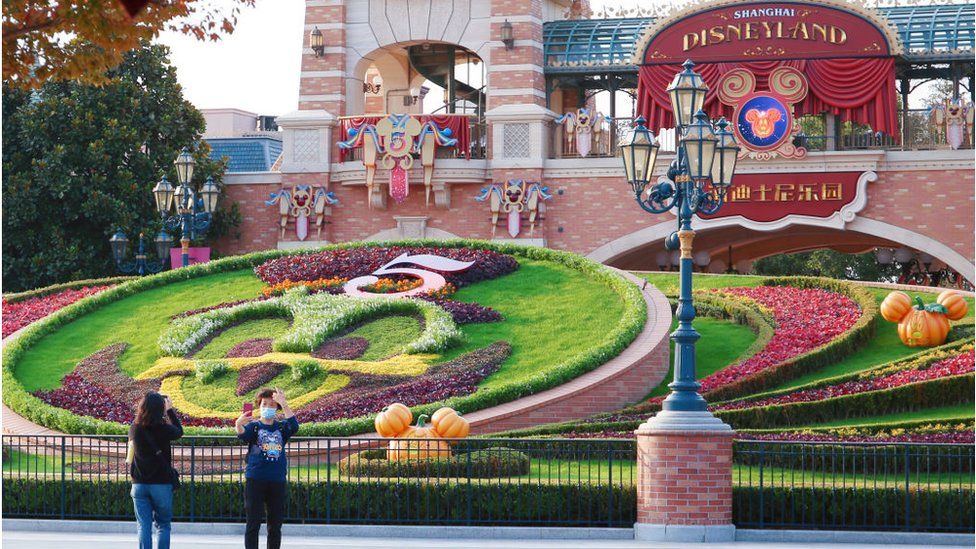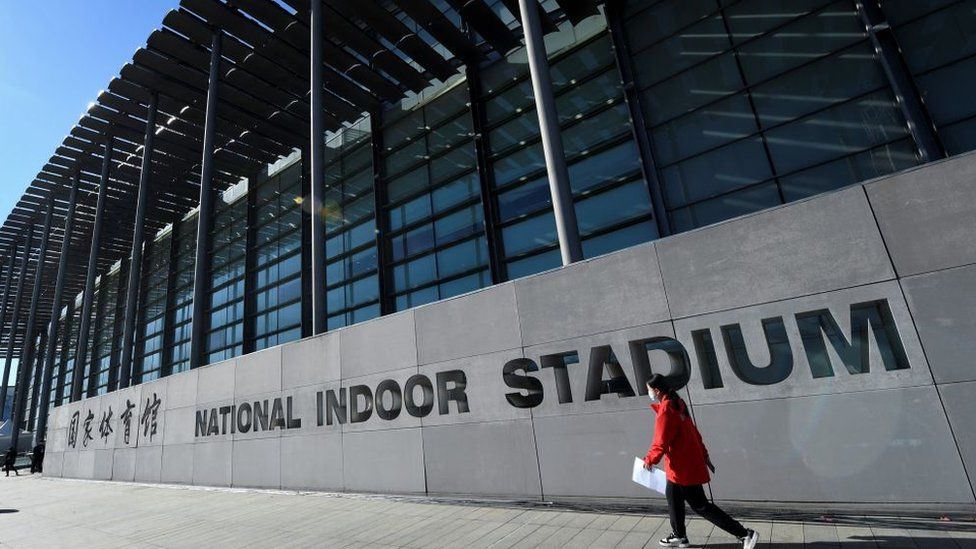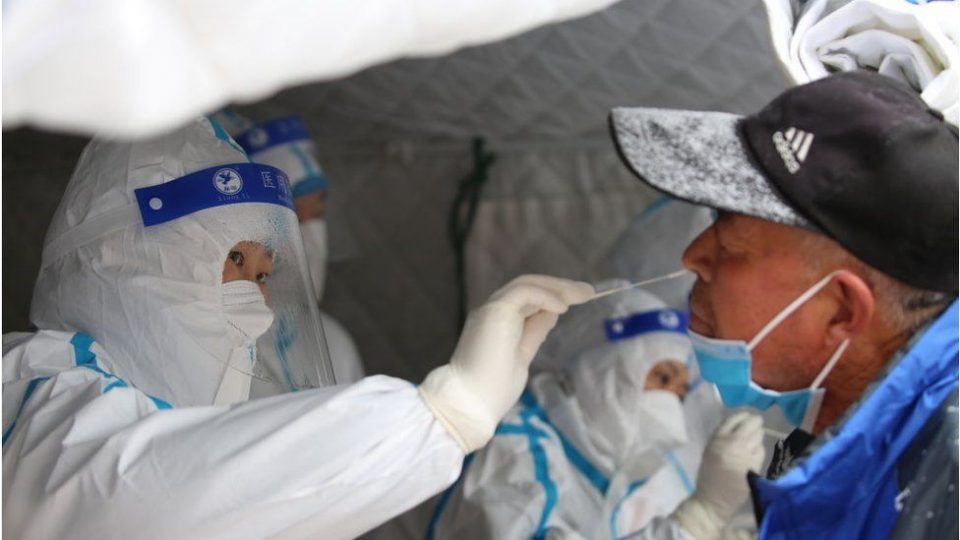Around the world people are getting used to post-lockdown life with vaccines doing the heavy lifting against Covid-19 as restrictions are eased. In China however, a hard elimination policy remains where the pandemic first began.
A person walks into a five-star hotel to ask briefly for directions and ends up in two weeks quarantine because a guest had some coronavirus contact. One crew member on a high-speed train has close contact with an infected person, and a trainload of passengers is sent to quarantine for mass testing. In Shanghai Disneyland, 33,863 visitors suddenly have to undergo mass testing because a visitor the day before got infected.
Welcome to life in the country which now feels like a perpetual, back-to-zero-Covid world.
China was the first country to impose restrictions to combat this pandemic and it will be one of the last to ease them.
When you speak to ordinary Chinese people in the street, you will find that many do not seem to mind the continued strict anti-virus measures as long as they are kept safe.
I asked one woman whether China should open faster and she said it would be best to wait until the pandemic is sorted out properly because safety is number one.
Another woman heading home from work told me the virus is not completely understood, that vaccines would improve and so, for the sake of social stability, it would be best to hold off opening up.
Not so long ago, other countries like Australia, New Zealand and Singapore were also approaching each outbreak of the coronavirus as something that had to be completely stamped out in the community, sending cities into lockdown until the virus stopped spreading.
The goal was to reach zero local transmissions.
The two things that changed this approach were the emergence of the much tougher to control Delta variant of the disease and, more crucially, reaching high vaccination levels.
High vaccination rates meant people might still contract Covid-19, but not have to go to hospital.
As a result, borders elsewhere are opening to international travel. In China however, visas for foreigners remain hard to come by and Chinese people are still not having their passports renewed after they expire.
Elsewhere, people are “living with the virus”. Not in China, where yet another Delta outbreak is being attacked with the same zeal as before the vaccine.
If the official figures are accurate, over 1,000 local transmissions have been recorded since October. The figure is not that high, but the spread is significant, hitting 21 provinces. This matters because even a couple of cases in China will trigger the same strict measures as hundreds or thousands of new infections.
‘Not a single infection is acceptable’
The authorities have shown no inclination to alter this approach, even as some Chinese scientists urge a re-think.
Professor Guan Yi, a virologist from Hong Kong University and adviser to the government, has called for a switch from mass nucleic acid tests (which find infections) to mass antibody tests (which might help scientists understand the effectiveness of vaccines).
In an interview with Phoenix TV he said that in the long run, there is no chance that a zero-Covid strategy could work in terms of achieving complete elimination.
“The virus is permanent now,” he said. “It’s the same as influenza, which will circulate in humans for a long time”.

This concept will not come as a surprise to people in other countries. In China however, the government has drilled the population to mobilise to get back to zero cases with each new surge of the virus. Changing this message will be hard.
Asked how much protection China’s vaccines might offer against mutant strains of the coronavirus, Prof Guan said that this is something the vaccine producers would have to answer.
He is not alone amongst academics who are now questioning Beijing’s direction.
Dr Huang Yanzhong, from the New-York based Council on Foreign Relations, says a key problem is that vaccines cannot achieve what the Chinese government would like them to, making Beijing wary.
“They’re not confident about the effectiveness of the vaccines – the ability to prevent infections,” he told the BBC, “because actually even the best vaccines can’t prevent infections – but the zero-tolerance strategy says we can’t accept even one single infection.”
Dr Huang added the Chinese government has found itself in a political and ideological bind when trumpeting its successes to its people.
“The zero-tolerance strategy is also part of the official narrative, to claim the success of the Chinese pandemic response model, the superiority of the Chinese political system. So if you give up that strategy, and then you saw the cases increasing significantly, you know that would lead people to question the model.”
‘A million reasons’
Add to the mix that Beijing has some big events coming up and there is great desire amongst officials to hold them in an environment free of any Covid outbreak.
Most immediately there is the Winter Olympics in February. Tickets have not gone on sale but the goal is to have spectators in the stands.
Next October is the Communist Party’s five-yearly Congress, when Xi Jinping is expected to begin a historic third term in office.
Of course, there will always be something on the horizon.

Another rather bleak interpretation is that General Secretary Xi Jinping and his administration like the idea of reducing foreign influence in China, and the pandemic has provided an excellent excuse to move in this direction.
On social media, some posts by nationalists have decried international influence on “China’s” way of doing things.
The emphasis of governance here has certainly shifted from a “reform and opening up” philosophy to one that places the Communist Party at the centre of everything and its leader Xi Jinping at its very core.
Given that other countries have been opening their borders, the BBC asked Foreign Ministry spokesman Wang Wenbin when his country might do the same.
He replied that China has been watching the experience of other countries and would follow science to make its decisions in light of new variants that were emerging.
Either way, experts close to those in power here are not signalling an imminent end to zero-Covid. In fact, it is quite the opposite.
‘Too high’ a cost
Dr Zhong Nanshan is seen as something of a medical hero in China. The specialist in respiratory medicine shot to global fame in 2003 for challenging the then-government’s line that the Sars outbreak was not so severe.
These days, people – including officials – listen to what he has to say.
In a recent interview, he said China’s strict Covid amelioration measures would remain for “a rather long time”.
He added that a global Covid-19 mortality rate of 2% was too high for China to accept even with vaccines in place. The cost of opening too quickly was not worth it, he said, adding that China would be watching the experience of other countries under their “living-with-Covid” plans.
It is also important to consider that China’s officials can be quite conservative in their approach. It is possible that they plan to “re-open” the country again and are simply in no great rush to do so.
For many of those wanting to enter China or to leave it, they have no choice but to wait and see.
While middle and upper class people may be lamenting the lack of freedom to move about internationally, many ordinary Chinese citizens seem content to allow the government to manage the situation if it keeps them healthy.
In the meantime, mass testing, centralised quarantine, transport controls, high-level surveillance, delivering track and trace as well as strict, localised lockdowns will remain a big part of life in China.


